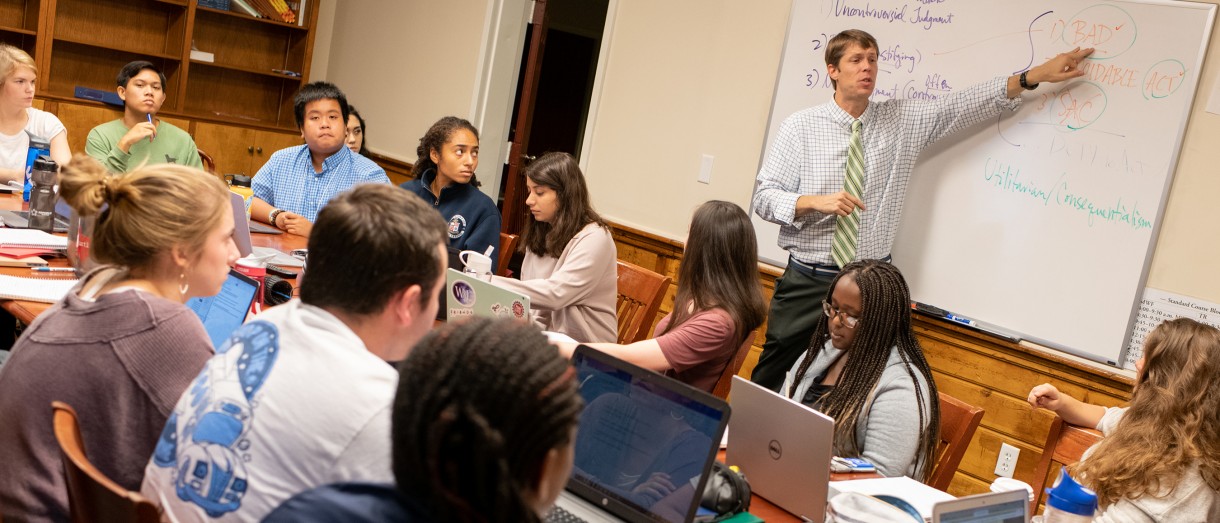
Community-Based Learning

Community-Based Learning
Community-based learning is our approach to education that integrates learning and mentorship with community engagement through reciprocal community partnerships and critical reflection. With our close ties to the community, our commitment to education, and our mission to preparing students to be engaged, responsible leaders, we provide a unique environment for service and civic engagement in an academic setting. Offerings for community-based learning occur both inside and outside the classroom and differ depending on the course.
Academics
“College is more than earning a degree. Service in your new community builds connections that cannot be replicated on campus and is another learning environment.”
Sasha Edwards
Bonner Scholar • Major: Biology • Minor: Education